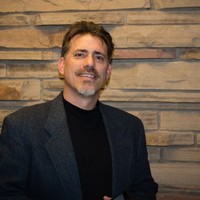Events

- This event has passed.
Research Methods for Solar PV
26th April 2022 @ 10:00 am - 27th April 2022 @ 3:00 pm BST
FreeNinth in a series of annual training workshops, this year’s event will stay online, focussing on PV Devices and Systems. Leading international and UK researchers will give their specialist ‘must-have’ overviews of key knowledge essential for postgraduates, postdocs and industrial researchers in Silicon, Perovskites, Organics and CdTe. In addition, this year, there will also be talks on Machine Learning for PV, Specroscopy for PV, Atomic Layer Deposition methods and Modelling for Bifacials.
Tuesday 26th & Wednesday 27th April (10.00am-3.00pm BST)
The workshop is free and open to everyone, spread over two easy to digest sessions on consecutive days.
REGISTER HERE
DAY 1: Tuesday 26th April (10.00am-3.00pm BST)
Dr. Brett Hallam, University of New South Wales – Silicon Photovoltaics
Dr. Nakita Noel, University of Oxford – Perovskite Photovoltaics
Dr. Imalka Jayawardena, University of Surrey – Organic Solar Cells
Prof. Kurt Barth, Loughborough University – CdTe Photovoltaics
Day 2: Wednesday 27th April (10.00am-3.00pm BST)
Dr. Ziv Hameiri, University of New South Wales – Machine Learning for PV
Dr. Hieu T. Nguyen, Australian National University – Spectroscopy for Photovoltaics
Dr. Nicholas Grant, University of Warwick – Atomic Layer Deposition for Photovoltaics
Dr. Silvana Ayala, NREL – Bifacial PV Modelling
Workshop coordinator: Dr Tasmiat Rahman (University of Southampton).
Speaker Profiles and Session Summaries:
 Dr Brett Hallam is a Scientia Fellow in the School of Photovoltaic and Renewable Energy Engineering at UNSW. His research interests include laser processing and defect-engineering for silicon solar cells. The development of these processes could improve the efficiency of solar cells and reduce the cost of photovoltaic generated electricity. A key focus of his current research is improving the fundamental understanding of hydrogen passivation mechanisms in silicon solar cells to overcome the negative impact of performance limiting defects.
Dr Brett Hallam is a Scientia Fellow in the School of Photovoltaic and Renewable Energy Engineering at UNSW. His research interests include laser processing and defect-engineering for silicon solar cells. The development of these processes could improve the efficiency of solar cells and reduce the cost of photovoltaic generated electricity. A key focus of his current research is improving the fundamental understanding of hydrogen passivation mechanisms in silicon solar cells to overcome the negative impact of performance limiting defects.
Dr Hallam will cover in this tutorial crystallisation, texturing, emitter, rear surface passivation, and metallisation. He will provide current technology trends in Silicon PV, as well as discussing degradation and environmental concerns, including silver consumption.
 Dr Nakita Noel is EPSRC Research Fellow in the Department of Physics at the University of Oxford. Her focus is on understanding the solution chemistry and colloid physics of halide perovskite precursor inks, and how the nature of these inks affect the crystallisation kinetics and optoelectronic properties of the resultant thin-films.
Dr Nakita Noel is EPSRC Research Fellow in the Department of Physics at the University of Oxford. Her focus is on understanding the solution chemistry and colloid physics of halide perovskite precursor inks, and how the nature of these inks affect the crystallisation kinetics and optoelectronic properties of the resultant thin-films.
A little over a decade ago, halide perovskites began making waves in the PV research community. These materials boast truly impressive optoelectronic properties and promise to revolutionise the PV landscape both as a stand-alone technology and used in tandem with established PV such as silicon. In this talk, we’ll cover the how and why of what makes these materials so special, give a general overview of where the field currently stands, and highlight some open questions we need to answer in order to truly realise the potential of perovskite PV.
 Dr Imalka Jayawardena is the Marcus Lee Lecturer at the Advanced technology Institute at the University of Surrey. His research focuses on the development of high efficiency perovskite photovoltaics based on low and wide bandgap compositions, developing new detectors for medical imaging and radiation dosimetry as well understanding radiation damage in emerging semiconductors.
Dr Imalka Jayawardena is the Marcus Lee Lecturer at the Advanced technology Institute at the University of Surrey. His research focuses on the development of high efficiency perovskite photovoltaics based on low and wide bandgap compositions, developing new detectors for medical imaging and radiation dosimetry as well understanding radiation damage in emerging semiconductors.
![]() Dr Jayawardena will focus on passivation strategies for reducing the recombination within the perovskite bulk as well as the absorber/charge extraction layer interfaces.
Dr Jayawardena will focus on passivation strategies for reducing the recombination within the perovskite bulk as well as the absorber/charge extraction layer interfaces.
 Newly appointed as Professor of Photovoltaics at Loughborough University, Kurt has over 30 years of experience in thin film PV, module development, reliability, materials science, strategic planning, program management, product development and thin film photovoltaic R&D.
Newly appointed as Professor of Photovoltaics at Loughborough University, Kurt has over 30 years of experience in thin film PV, module development, reliability, materials science, strategic planning, program management, product development and thin film photovoltaic R&D.
With approximately 35 GW installed, CdTe based solar is the dominate thin film technology. This talk will cover CdTe device structures and processing used for both R&D and manufacturing. Fabrication tools, methods and challenges will be presented.
 Dr Ziv Hameiri is Associate Professor in the Faculty of Engineering at the University of New South Wales, with research interests in the development of machine learning applications for photovoltaics and new characterisation methods for silicon and non-silicon devices.
Dr Ziv Hameiri is Associate Professor in the Faculty of Engineering at the University of New South Wales, with research interests in the development of machine learning applications for photovoltaics and new characterisation methods for silicon and non-silicon devices.
The latest Intergovernmental Panel on Climate Change (IPCC) report was devastating. It indicates that mankind is unlikely to prevent the dreadful rise of global temperatures above 1.5 °C (compared to pre-industrial levels). It seems that we, humankind, have created so much damage that now we cannot avoid the consequences of our actions. We need help from machines, and we need to teach them how to help us. In this talk, Ziv will present three applications of machine learning that may help humankind save the planet.
 Dr Hieu Nguyen is a senior research fellow and senior lecturer at the Australian National University (ANU). He received his PhD in engineering (photovoltaics) from the ANU in 2016. In 2017, he was a visiting scientist at the United States’ National Renewable Energy Laboratory (NREL). His team works to explore the fundamental properties of light-matter interactions in solar energy materials and devices under various conditions. The team works to uncover the relationship between absorbed/emitted light and important properties of the materials and devices, including optical, electrical, chemical, and structural properties. By exploiting these phenomena, the team develops novel device concepts, advanced characterisation techniques, and defect engineering routes for solar cells.
Dr Hieu Nguyen is a senior research fellow and senior lecturer at the Australian National University (ANU). He received his PhD in engineering (photovoltaics) from the ANU in 2016. In 2017, he was a visiting scientist at the United States’ National Renewable Energy Laboratory (NREL). His team works to explore the fundamental properties of light-matter interactions in solar energy materials and devices under various conditions. The team works to uncover the relationship between absorbed/emitted light and important properties of the materials and devices, including optical, electrical, chemical, and structural properties. By exploiting these phenomena, the team develops novel device concepts, advanced characterisation techniques, and defect engineering routes for solar cells.
 Dr. Nguyen will first cover the basics of optical phenomena in PV materials including absorption, reflection, transmission, luminescence, charge generation and movement between materials. He will then briefly explain setups and mechanisms of some common optical tools to capture light. Finally, it will walk attendees through how to apply these techniques to determine the fundamental properties and operating parameters of various solar materials (silicon, perovskite, and 2D materials).
Dr. Nguyen will first cover the basics of optical phenomena in PV materials including absorption, reflection, transmission, luminescence, charge generation and movement between materials. He will then briefly explain setups and mechanisms of some common optical tools to capture light. Finally, it will walk attendees through how to apply these techniques to determine the fundamental properties and operating parameters of various solar materials (silicon, perovskite, and 2D materials).
 Dr Nicholas Grant is Assistant Professor at the University of Warwick, with a focus on the development of surface layers to improve interfacial properties in future high efficiency silicon based photovoltaic devices.
Dr Nicholas Grant is Assistant Professor at the University of Warwick, with a focus on the development of surface layers to improve interfacial properties in future high efficiency silicon based photovoltaic devices.
This workshop session will focus on atomic layer deposition of thin dielectric and conductive films for photovoltaic applications (specifically on silicon materials). I will present some background information relating to ALD of these films, however this session will mainly focus on experimental control when using ALD, with plenty of real life examples. Specifically I will detail how to achieve the best results from your ALD depositions, but also give you the tools to identify when problems might arise, and how they can be overcome by carefully setting up your experiment. Finally, I will discuss some relevant characterisation techniques that are necessary to accurately quantify your deposited films. By the end of this session, you should have a good understanding on how to conduct well controlled ALD depositions for your specific PV application.
Finally, I will discuss some relevant characterisation techniques that are necessary to accurately quantify your deposited films. By the end of this session, you should have a good understanding on how to conduct well controlled ALD depositions for your specific PV application.
 Dr Silvana Ayala is a researcher at NREL working with the performance and reliability group on bifacial photovoltaic technology. Her projects focus on bifacial PV optical and electrical performance and modeling and her research includes characterization and energy/optics simulation for bifacial and previously for PV-holographic system energy production.
Dr Silvana Ayala is a researcher at NREL working with the performance and reliability group on bifacial photovoltaic technology. Her projects focus on bifacial PV optical and electrical performance and modeling and her research includes characterization and energy/optics simulation for bifacial and previously for PV-holographic system energy production.
Bifacial PV has attracted much attention in the market over the last years, representing 20GW of worldwide installations in 2020. We will cover the basics of bifaciality factors and measurements, emerging trends in the bifacial modules, and then focus on the challenges of modeling and testing for owners and researchers.
attention in the market over the last years, representing 20GW of worldwide installations in 2020. We will cover the basics of bifaciality factors and measurements, emerging trends in the bifacial modules, and then focus on the challenges of modeling and testing for owners and researchers.
